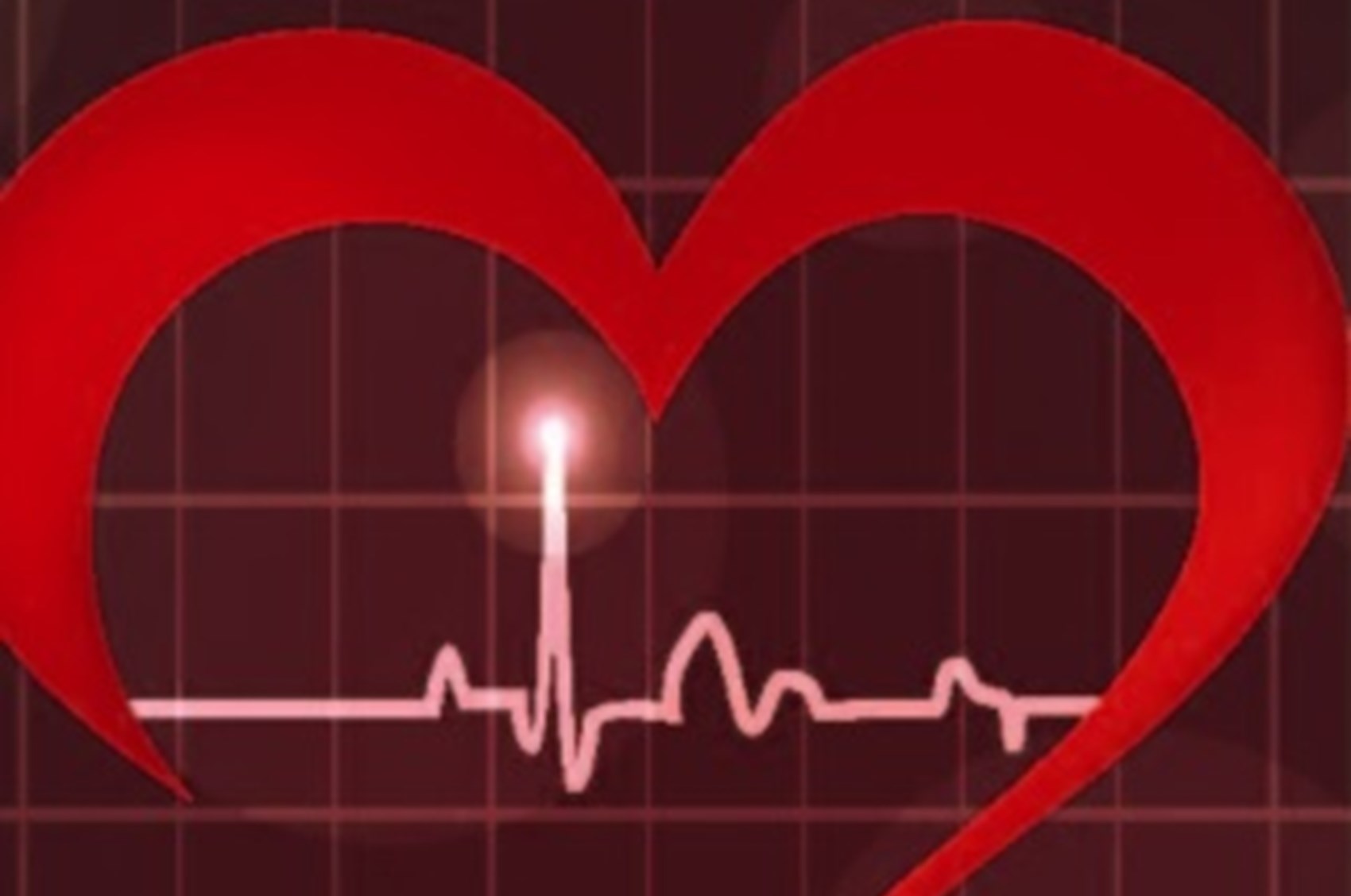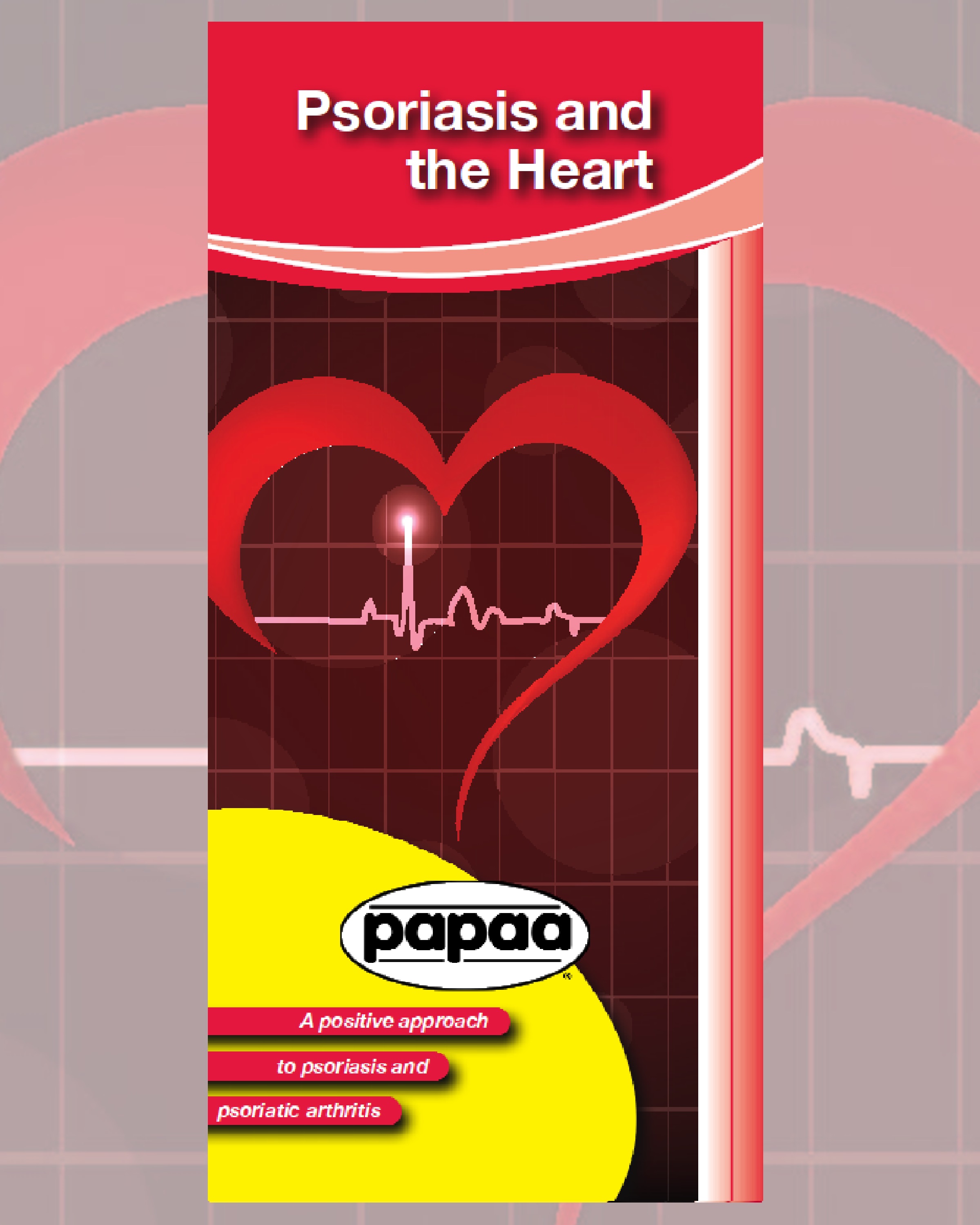
Search
You have no items in your basket

Heart (cardiovascular) disease
Heart disease is the second most common long-term disease, after musculoskeletal conditions, in the UK. There are around 7.6 million people living with a heart or circulatory disease in the UK. It is more common in men with around four million affected. For women it is slightly lower at just over three and a half million.
The most common form of disease that involves the heart and blood vessels is atherosclerosis which is sometimes called hardening of the arteries. It occurs when cholesterol and fatty deposits clog the blood vessels, slowing blood flow and preventing the delivery of oxygen and nutrients to the heart, brain and other organs. This may result in angina, heart attack or stroke. Heart disease can be life threatening. There are lots of risk factors for developing heart disease, many of which can be avoided or minimised.
The psoriasis-heart connection
There is currently a considerable amount of research being undertaken to explore the psoriasis-heart connection more fully. Some researchers have described that psoriasis itself may be a risk factor for developing heart disease, or that the risk of heart disease is greater for those who have both psoriasis and inflammatory arthritis. However, other research reports that people with psoriasis have no additional risk of heart disease due to their psoriasis at all.
There are many, well-known, risk factors for heart disease including diabetes, obesity, high blood pressure (hypertension), and increased low-density lipoprotein (LDL), often known as bad cholesterol. Research shows that risk factors for heart disease are more frequently found in people with psoriasis than in people who do not have psoriasis. It is unclear why this is the case but it may explain why some people with psoriasis develop heart disease. The good news is that you can take action. By making positive changes to lifestyle and diet you can reduce many of these risk factors and improve the health of your heart.
What you can change
You can reduce your risk of heart disease by doing something about the following issues.
High blood pressure: High blood pressure or hypertension (consistently above 140/90 mmHg) can narrow and eventually block the blood vessels that carry blood around your body. It also places additional strain on the heart, with the potential to lead to a heart attack. Very high blood pressure can result in blood vessels in the brain bursting, causing a stroke. Hypertension often has no symptoms, so be sure to have your blood pressure checked every year.
High blood cholesterol: Cholesterol and triglycerides are types of fat that are vital to healthy cell function, but they can also block and narrow the blood vessels, leading to a heart attack or stroke. High cholesterol levels are associated with high fat diets, smoking, inactivity and a family history of high cholesterol. Eating a balanced diet, being physically active, not smoking and reducing salt and alcohol consumption can significantly reduce your cholesterol levels. Some people may also require medication to control their blood cholesterol. It is important to note that cholesterol is produced by the liver and despite low cholesterol diets some people still require medication to help reduce blood cholesterol levels. At the present time, the target healthy cholesterol level is the same for individuals with and without psoriasis. See our Psoriatic Lifestyle and Nutrition leaflet.
Physical inactivity: Being inactive can double your risk of heart attack and stroke. You don’t have to exercise strenuously to enjoy the health benefits. Start with a goal of 10 minutes of daily activity, such as walking or gardening. Gradually increase the amount and intensity. If activity causes pain or if you are unsure about embarking on any exercise programme, consult your doctor. It may also be helpful to read our leaflet Physiotherapy and Exercise: Psoriatic Arthritis.
Diabetes: It is essential that you manage your blood sugar level carefully if you have diabetes, as more than 80% of people with diabetes die of heart disease.
Excess weight: Your weight can put you at risk of developing heart disease, as well as developing high blood pressure, high cholesterol and diabetes. There is also evidence that nutrition has an important role in psoriasis and the treatment of psoriasis. People who carry weight around their middle (apple-shaped) versus around their hips (pear shaped) are at greater risk of heart problems. Even a modest reduction in weight – as little as 10% – can significantly reduce your chances of having a heart attack or stroke or developing diabetes, as well as improving your overall wellbeing. Can you eat more fruit, vegetables and fibre? Can you cut back on eating saturated fats and processed/ sugary foods?
Smoking: Stopping smoking is one of the most important steps to take for a healthy heart. The health risks associated with smoking include atherosclerosis, an increased risk of blood clots, reduced oxygen in the blood, increased blood pressure and cholesterol, and heart disease. Your GP may be able to help you stop smoking.
Excessive alcohol consumption: There is some evidence that a moderate amount of alcohol (particularly red wine) may be good for your heart; however, too much alcohol can contribute to various health problems, including heart disease.
If you do drink alcohol, the NHS guidelines are that:
14 units is equivalent to 6 pints of average-strength beer or 10 small glasses of low-strength wine.
The following table will show you how many units are in different alcoholic drinks.
|
Type of drink |
Number of alcohol units |
|
Single small shot of spirits (25ml, ABV 40%) |
1 unit |
|
Large single shot of spirits (35ml) |
1.4 units |
|
Alcopop (275ml, ABV 5.5%) |
1.5 units |
|
Small glass of red/white/rosé wine (125ml, ABV 12%) |
1.5 units |
|
Bottle of lager/beer/cider (330ml, ABV 5%) |
1.7 units |
|
Can of lager/beer/cider (440ml, ABV 5.5%) |
2.4 units |
|
Pint of lower-strength lager/beer/cider (ABV 3.6%) |
2 units |
|
Standard glass of red/white/rosé wine (175ml, ABV 12%) |
2.1 units |
|
Pint of higher-strength lager/beer/cider (ABV 5.2%) |
3 units |
|
Large glass of red/white/rosé wine (250ml, ABV 12%) |
3 units |
Remember: for certain medications you will be advised to avoid alcohol (for example methotrexate), so do make sure your healthcare provider is aware of your alcohol consumption.
Stress: Stress can increase your risk of heart disease, and it may also encourage your psoriasis to flare. It is important to learn how to reduce your stress in a healthy way rather than resorting to unhealthy strategies such as smoking, drinking and overeating. Exercise, yoga and relaxation techniques can be effective. Healthy stress release, such as listening to music, meeting with friends or pursuing a hobby is really good too. You may also wish to talk to your doctor about counselling or medication.
What you cannot change
Some risk factors for heart disease cannot be changed.
These include:
Are you concerned?
If you have any of the risk factors for heart disease that you cannot change, it is especially important to try to reduce those risks which you can change.
If you are worried about any of the issues outlined above, talk to your doctor or healthcare advisor, who will be able to provide you with reassurance and explanations of your individual risk factors.
How can your doctor help?
Your doctor may measure your blood pressure or take some blood tests to check your blood glucose or cholesterol levels. Often these are performed in the morning after an overnight fast. You may be prescribed medication to help you reduce your risk of heart disease. Some medications, such as those which can help control cholesterol (collectively called statins), have several additional health benefits. Other medications, such as beta-blockers, are helpful for blood pressure but can cause worsening of psoriasis. If a new medication seems to be affecting you in an adverse way, please consult your doctor immediately.
Some medications for the treatment of psoriasis can cause high blood pressure (ciclosporin) or change the levels of triglycerides/cholesterol (acitretin). If your dermatologist is considering these medications, he or she will check your blood pressure and take blood tests regularly.
Things to look out for
Angina
If you notice these symptoms seek the attention of your GP as soon as possible.
Heart attack:
Stroke:
If you notice symptoms suggestive of a heart attack or stroke, seek emergency medical attention IMMEDIATELY.



Drink more water. Although there is no strict guideline, replacing fluids is important and you should aim to drink at least 2-3 litres of water a day, particularly during warm or hot weather.
This article is adapted from the Psoriasis and the heart leaflet.
Download our Psoriasis and the Heart leaflet as a pdf
Always consult a doctor or your healthcare provider